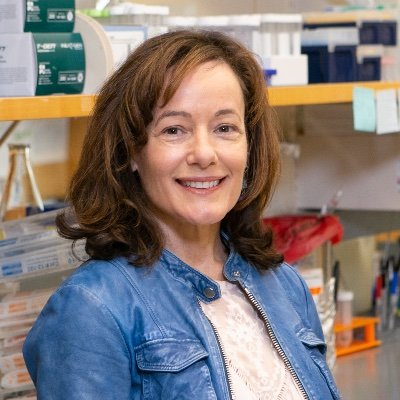
Mark Hedglin
@Hedglin_Lab
Followers
536
Following
2K
Media
27
Statuses
409
Assistant Professor of Chemistry studying the regulation of DNA Damage Tolerance and its implication in human disease and chemoresistance.
University Park, Pennsylvania
Joined February 2020
Major implications for interplay between human DNA damage tolerance pathways. A culmination of the continuous efforts of lead author Jessica Norris, recent Chemistry PhD graduate @psu_chemistry & another great collaboration with the Edwin Antony lab.
0
1
0
New pre-print from our lab @psu_chemistry @PSUScience. Direct, ensemble FRET assays developed by our lab reveal that assembly of Rad51 filaments @ stalled replication sites via RPA/Rad51 exchange causes complete & irreversible PCNA unloading.
1
1
5
That’s a wrap to Mammalian DNA Repair @GordonConf. MUCH thanks & appreciation to @RogerRogergr & @hildaApickett for organizing an exceptional meeting. Thankful 4 the opportunity to give a talk on our research @psu_chemistry @PSUScience & 4 the insightful & constructive feedback.
1
1
5
Excited & en route to attend Mammalian DNA Repair @GordonConf . Looking forward to catching up with old friends, making new connections, learning new science & presenting our recent advances from @psu_chemistry @PSUScience.
1
2
10
Had a phenomenal time visiting the Dept of Med Chem at the U of Kansas. Grateful for the opportunity to present some of our research @psu_chemistry @PSUScience. Many thanks to @LukeErber for the invite & the dept for sharing their exciting science & for the hospitality.
0
0
4
polymerase delta holoenzymes promotes their progression at certain lesions by providing multiple attempts at one or more dNTP incorporation steps involved in lesion bypass. This work was led by 5th year @psu_chemistry PhD student Rachel Dannenberg @PSUScience.
1
0
2
Very happy & excited to be able to attend & participate in @NOBCChE Sustainable Momentum Conference. @psu_chemistry @PSUScience
1
2
9
Check this 👇out! Amazing opportunity.
🚨 TENURE-TRACK Faculty Opportunity .The Genome Integrity Program @UMassChan Join us exploring DNA replication/repair with Core services supporting your cutting-edge research. 🔗 Learn more: #Genomics #FacultyJobs #Research #Science.
1
0
0


